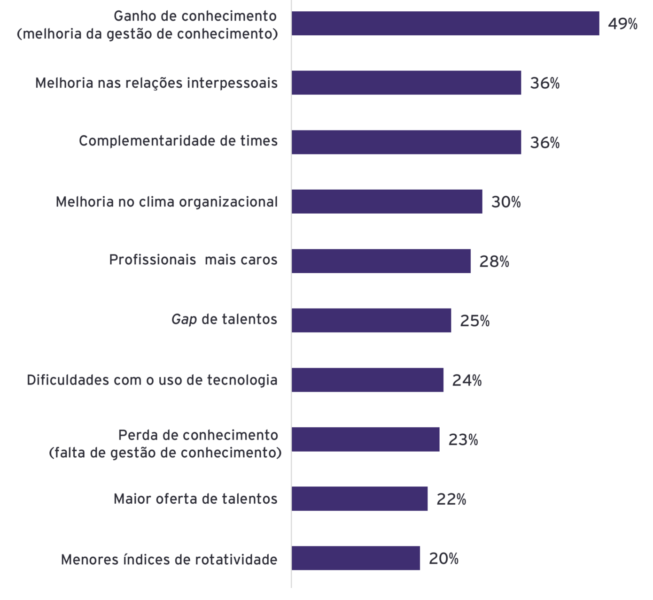
Perhaps you remember a comedy starring Robert De Niro, in which the actor plays a 70-year-old widower hired as an intern at a company. In a humorous and light way, the generational shock was portrayed by Hollywood in “Um Senhor Intern” and shed light on the subject. At the time, little was said about terms such as ageism or ageism (prejudice against people because of their age), guidelines highlighted in the ESG agenda and with an impact on the reputation of companies, which already understand the need to look at and position themselves on the employability of generations over 50, but still with work to do.
“When it comes to diversity, equity and inclusion, we're targeting some louder agendas, and that's fine. However, the subject of ageism goes over the edges, nobody sees it as something that needs to be faced, says Oliver Kamakura, partner in the practice of People Advisory Services at EY. “And that's the only agenda that hits everybody horizontally. We have already seen a movement in the market and the strengthening of various employability initiatives for 50+ professionals, but it needs to be even more widespread so that we can guarantee age diversity in companies.”

Leaders estimate positive effects of aging
Research by EY Brasil, in partnership with Maturi, entitled “Why are people 50+ not considered a workforce in an aging country?”, points out that three out of five leaders stated that they believe that the aging of the population will have impacts on their company, 41% already feel these impacts and 88% fully or partially agree with the statement that companies that prepare for aging will have an advantage. The good news is that the interviewed companies believe that this aspect has more positive than negative effects on their business.
The effects:

Conscious positioning and representativeness
In addition to visualizing positive impacts from an internal point of view, external stakeholders are increasingly demanding the close attention of companies and leaders to the generational agenda, which has important repercussions on the reputation aspect. According to Oliver, in interviews, candidates clearly show an interest in an agenda that exceeds the traditional one. “In other words, a company that consciously takes a stand on an issue such as ageism is not blind and takes a positive message to outsiders,” he says.

Juliana Ramalho, CEO of Talento Sênior, which works with the inclusion of professionals aged 45+ in the labor market, recommends that the integration of generations should be encouraged by leaders, thus avoiding conflicts. “Brazil cannot afford to dispense with knowledge, and this involves leaders who promote work environments for exchanging experiences and experiences”, he reinforces.
The population aged 50+ in Brazil already totals 57.4 million people, according to last December's data from the Labor Market Bulletin 50+, from the Longevity Institute. The same study shows that 41.9% of this total is active in the job market. By 2040, more than half of the population will be over 50 years old. This means that, more and more, this significant group of people will be part of the job market, which does not exclude the need for constant learning and updating.
Dialogue with different ideas improves delivery in companies
Aware of social changes and willing to seek specific skills in the market for some of its functions, Gol created, as early as 2017, the Experience in Baggage program, an initiative to encourage the hiring of more experienced professionals for customer service positions at airports, for example. Today, 13% out of a universe of 14,000 employees are over 50 years of age at the company. “We transport 30 million passengers every year. We transport diversity. So, we have to have diversity represented in the company”, said Jean Carlo Nogueira, executive director of Gente e Cultura airline, in an interview published in the Reputation Feed.
The CDO and main research at Talento Sênior, Cristina Sabbag, confirms that reputation is directly related to representativeness in companies: “People need to get out of the bubbles and learn to dialogue with different ideas. This will improve the delivery of companies and, consequently, impact sustainability. And the customer will feel more represented. If they don't think about all extracts from generations, companies will have problems”, he believes.

Mariana Mondini is a journalist and consultant for ANK Reputation
mariana.mondini@ankreputation.com.br